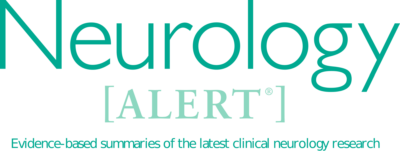
Neurology Alert – October 1, 2020
October 1, 2020
View Issues
-
Transthyretin Amyloidosis and Neuropathy
Wild-type transthyretin amyloidosis, referred to as “senile” amyloidosis previously, usually occurs in the aging population and affects the peripheral nerves and the heart. Usually, neurological symptoms precede cardiac symptoms.
-
A Novel Therapy for Amyotrophic Lateral Sclerosis Shows Promise
A novel drug combination was taken from an animal model and tested in a Phase II trial of patients with amyotrophic lateral sclerosis. Although there was a trend toward benefit, there were no statistically significant endpoints at the end of the trial. Future trials need to enroll a larger number of patients.
-
Oral Calcitonin Gene-Related Peptide Antagonist for Prevention of Migraine
Atogepant, an oral calcitonin gene-related peptide (CGRP) antagonist, was shown to be effective and safe for migraine prevention. This adds an additional CGRP antagonist to the growing arsenal of such medications, both oral and parenteral, for both prevention and treatment of migraine.
-
Auditory Startle Response as a Predictor of Recovery from Coma
Preserved habituation of the auditory startle response, performed at the bedside, indicates intact cortical structures and cortico-cortical white matter tract connections. Preservation of this reaction in patients with unresponsive wakefulness can help distinguish the vegetative state from minimally conscious state and may even predict eventual awakening.
-
Gut Microbiome in Patients at Risk for Parkinson’s Disease
Certain risk factors and prodromal markers of Parkinson’s disease (PD), such as constipation and rapid eye movement sleep behavior disorder, are associated with specific bacterial compositions of the gut. However, the value of gut microbiome data to predict the risk of PD development needs further investigation.
